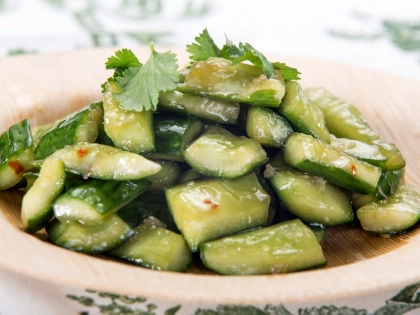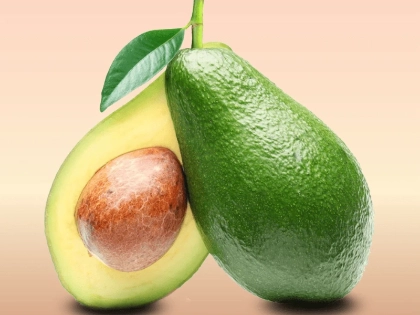Which Vitamins Can You Find in Cucumbers?
A cucumber is a little vegetable that has trace amounts of calcium, magnesium, folate, potassium, vitamin K, and vitamin C. The vegetable has a low natural salt, carbohydrate, and calorie content. Because they can help manage insulin levels and have a low glycemic index, cucumbers are an excellent diet for people with diabetes.
C vitamin
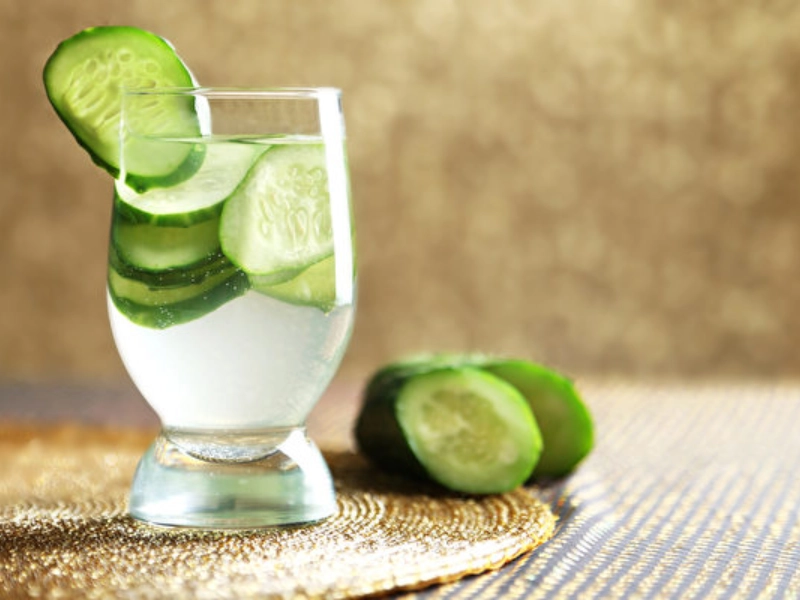
Vitamin K
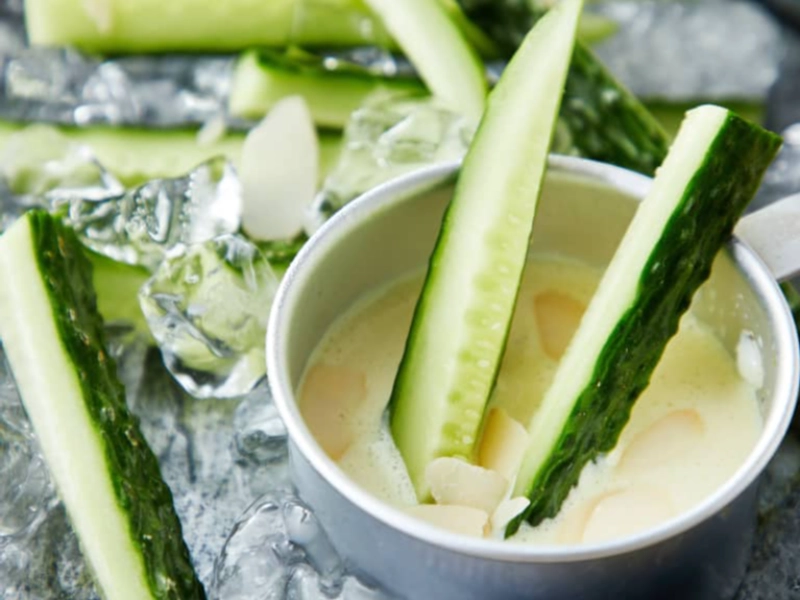 Vitamin K, which is abundant in cucumbers, is essential for healthy bones and blood coagulation. Moreover, it promotes cardiovascular health, nutrient absorption, and a healthy metabolism. In addition, vitamin K aids in the control of inflammatory reactions and cancer prevention. Additionally, potassium, a heart-healthy nutrient that can help counteract the effects of salt in the body, is abundant in cucumbers.
Cucumbers are rich in potassium and fiber, and they are also a wonderful source of antioxidants. Numerous phytonutrients are present in them, including beta-carotene, vitamins C and E, and flavonoids like lutein and zeaxanthin. As inbuilt scavengers, these phytonutrients may aid in shielding the organism from oxidative damage.
Although they don't contain much protein (0.3 grams per serving), cucumbers can be combined with other protein-rich foods like meat, nuts, and seeds to provide a balanced meal or snack. They are an excellent choice for hydration and weight loss because they are low in calories.
Vitamin K, which is abundant in cucumbers, is essential for healthy bones and blood coagulation. Moreover, it promotes cardiovascular health, nutrient absorption, and a healthy metabolism. In addition, vitamin K aids in the control of inflammatory reactions and cancer prevention. Additionally, potassium, a heart-healthy nutrient that can help counteract the effects of salt in the body, is abundant in cucumbers.
Cucumbers are rich in potassium and fiber, and they are also a wonderful source of antioxidants. Numerous phytonutrients are present in them, including beta-carotene, vitamins C and E, and flavonoids like lutein and zeaxanthin. As inbuilt scavengers, these phytonutrients may aid in shielding the organism from oxidative damage.
Although they don't contain much protein (0.3 grams per serving), cucumbers can be combined with other protein-rich foods like meat, nuts, and seeds to provide a balanced meal or snack. They are an excellent choice for hydration and weight loss because they are low in calories.
A vitamin
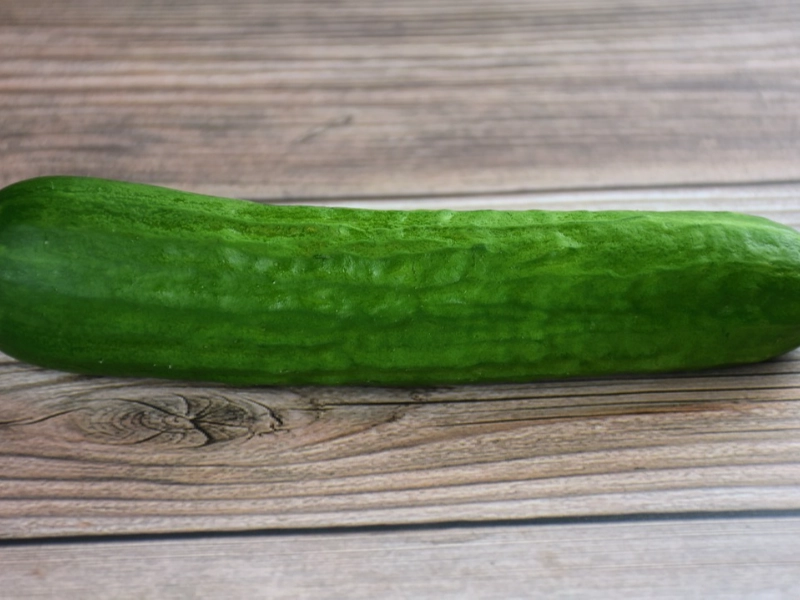 Vitamin A, which is found in cucumbers, is a necessary component that promotes healthy skin, eyesight, and the digestive system. They are also a rich source of potassium and fiber and low in calories.
Due to their capacity to draw extra water from the cells surrounding your eyes, they are frequently used as a natural cure to reduce puffy eyes. Due to their anti-inflammatory qualities, they are also frequently used as an ingredient in face masks and after-sun lotions to relieve skin irritation.
In addition to being an excellent source of vitamins C, K, A, E, folic acid, potassium, calcium, and magnesium, cucumbers have special antioxidant capabilities. They also include plant compounds with anti-inflammatory and disease-preventive qualities called flavonoids, lignans, and triterpenes. Eight calories and 4% of your daily vitamin K, 3% of your daily potassium, and 2% of your daily vitamin C can be found in one cup of sliced cucumber. To maximize their nutritional value, eat them raw, since cooking destroys their vitamin content.
Vitamin A, which is found in cucumbers, is a necessary component that promotes healthy skin, eyesight, and the digestive system. They are also a rich source of potassium and fiber and low in calories.
Due to their capacity to draw extra water from the cells surrounding your eyes, they are frequently used as a natural cure to reduce puffy eyes. Due to their anti-inflammatory qualities, they are also frequently used as an ingredient in face masks and after-sun lotions to relieve skin irritation.
In addition to being an excellent source of vitamins C, K, A, E, folic acid, potassium, calcium, and magnesium, cucumbers have special antioxidant capabilities. They also include plant compounds with anti-inflammatory and disease-preventive qualities called flavonoids, lignans, and triterpenes. Eight calories and 4% of your daily vitamin K, 3% of your daily potassium, and 2% of your daily vitamin C can be found in one cup of sliced cucumber. To maximize their nutritional value, eat them raw, since cooking destroys their vitamin content.
B vitamin
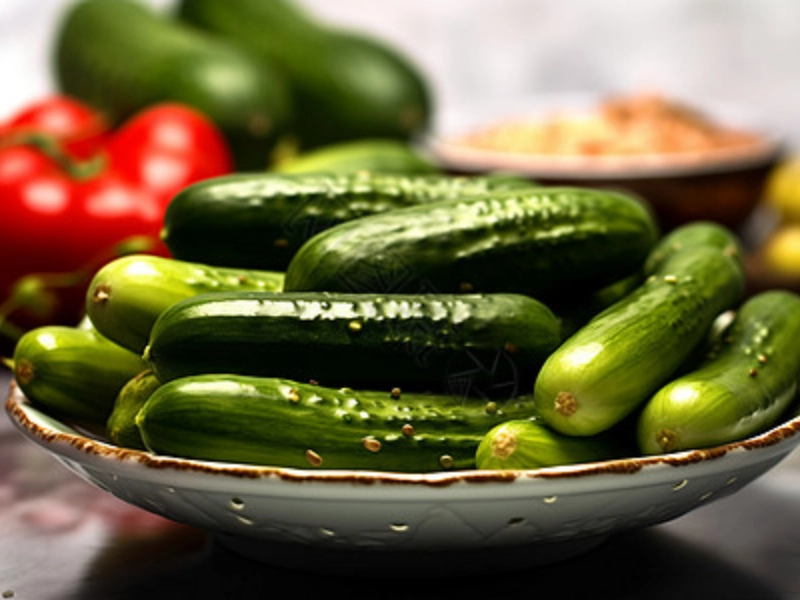 Cucumbers are a great source of hydration because they are low in calories and abundant in water. The vegetable offers trace amounts of potassium, dietary fiber, magnesium, vitamin A, and vitamins C and K. It is a member of the gourd family, Cucurbitaceae, which also includes melons, squash, and pumpkins.
According to Orlando-based registered dietitian nutritionist Megan Ware, one cup of sliced cucumber has eight calories and 4% of the daily required consumption of potassium. It also provides a minor quantity of vitamin C, a trace of calcium, and a healthy 8% of the daily required fiber intake.
According to the study, the lignans found in cucumber seeds—known as lariciresinol, pinoresinol, and secoisolariciresinol—help lower the risk of a number of cancers, including colon, breast, uterine, and prostate cancer. The vegetable should only be consumed in moderation as part of a balanced diet because it lacks protein. It is also important to remember that the peel could contain trace amounts of poisons like pesticides and lead, so be sure to remove it before eating.
Cucumbers are a great source of hydration because they are low in calories and abundant in water. The vegetable offers trace amounts of potassium, dietary fiber, magnesium, vitamin A, and vitamins C and K. It is a member of the gourd family, Cucurbitaceae, which also includes melons, squash, and pumpkins.
According to Orlando-based registered dietitian nutritionist Megan Ware, one cup of sliced cucumber has eight calories and 4% of the daily required consumption of potassium. It also provides a minor quantity of vitamin C, a trace of calcium, and a healthy 8% of the daily required fiber intake.
According to the study, the lignans found in cucumber seeds—known as lariciresinol, pinoresinol, and secoisolariciresinol—help lower the risk of a number of cancers, including colon, breast, uterine, and prostate cancer. The vegetable should only be consumed in moderation as part of a balanced diet because it lacks protein. It is also important to remember that the peel could contain trace amounts of poisons like pesticides and lead, so be sure to remove it before eating.





